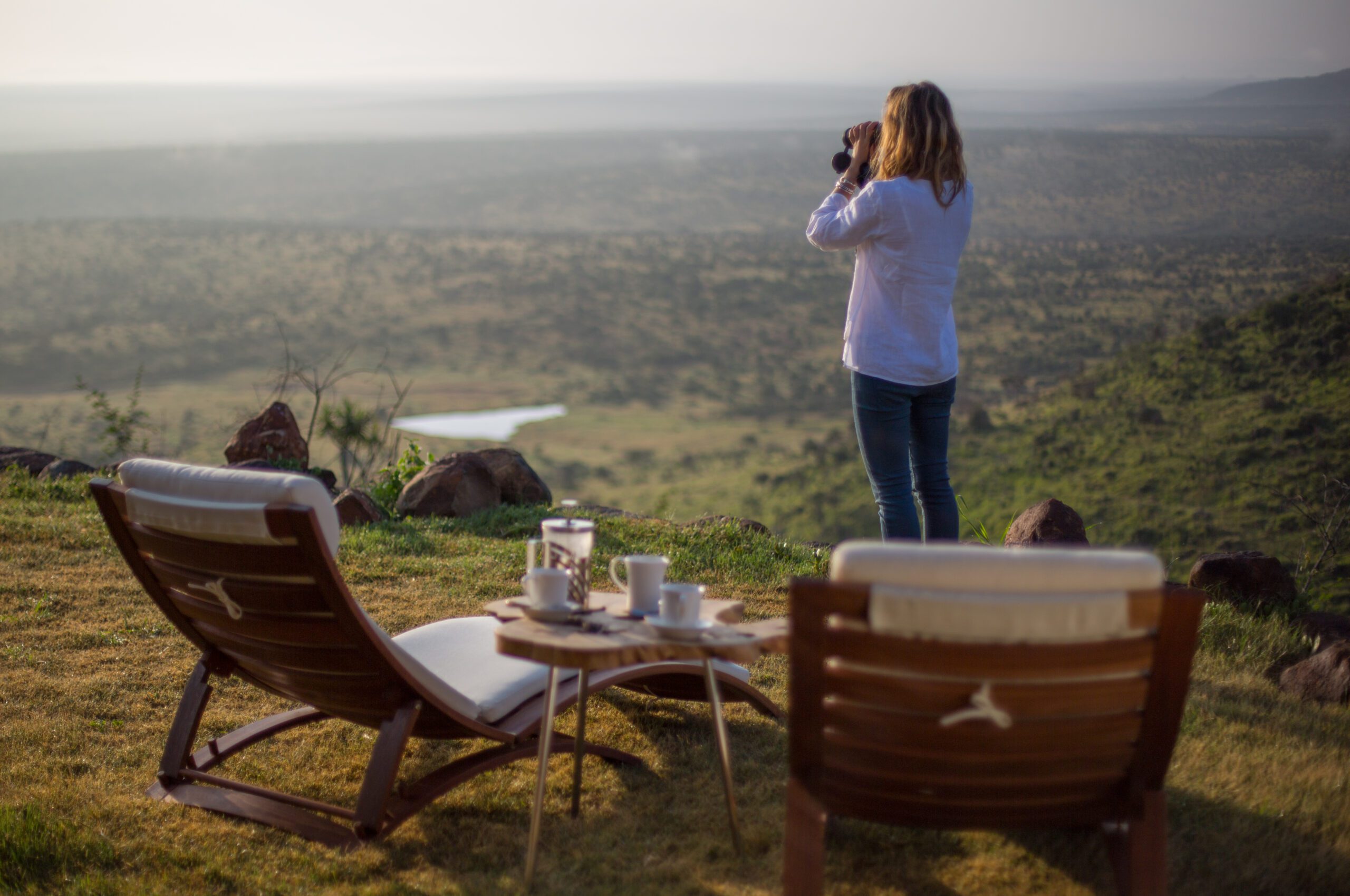We know that you place great importance on interacting respectfully with the places and people you visit as you travel. In the “sigh of relief” department, the good news is that when traveling with EJ Africa, you will be stay at properties that have demonstrated their commitment to the environment and to the local communities that are their neighbors.
For an idea of what we mean, consider the example of the Kalahari Plains Camp, located in the flat grasslands and vegetated dunes of the Central Kalahari Game Reserve (CKGR). The diversity and abundant presence of plants and animals in the CKGR, despite its classification as a water-challenged “thirstland,” result from energetic efforts at conservation by the Botswana government, coupled with the rigorous use of renewable energy systems by Kalahari Plains Camp that, figuratively speaking, make the camp a lovely shade of green.

“Treating the Earth well” can take other forms. Take, for instance, the work of the Laikipia Wildlife Forum in Kenya. It coordinates the efforts of a diverse group of local communities, ranchers, pastoralists, small scale farmers, and more than fifty safari lodges and tented camps to preserve the integrity of the Laikipia ecosystem. Stay at Loisaba Wilderness Lodge and see for yourself that wildlife research and sustainable land management provide the context for an unexcelled safari experience in which local Samburu and Maasai people are full partners.
The word conservancy (as in the Mara Plains and the Olare Orok Conservancy) is another tip-off to the commitment by tourism ventures to the well-being of humans, wildlife, and the ecosystem of which they are a part. On the border of the Maasai Mara Game Reserve, Mara Plains and local Maasai communities are operationalizing a vision in which habitat destructive practices are being replaced by sustainable land management. Economic risk to the Maasai stakeholders is offset by guaranteed annual compensation.

North Island Seychelles represents an extraordinary case of environmental commitment. When the island was abandoned in the 1970s—that’s right, declared useless by its owners following the collapse of the coconut industry—it was overrun by non-local species and suffered from habitat degradation. Simultaneously the orphan island’s new owners began an ongoing reclamation effort that has restored indigenous species of plants and animals and with them the balance of nature, and created an accolade-winning luxury resort.
As you can see, Extraordinary Journeys Africa works in partnership with properties whose commitment to sustainable travel is reflected in their concern for the natural world and in their relations with their neighbors. Let us arrange for you to experience for yourself just how small the adventuresome traveler’s human footprint can be.